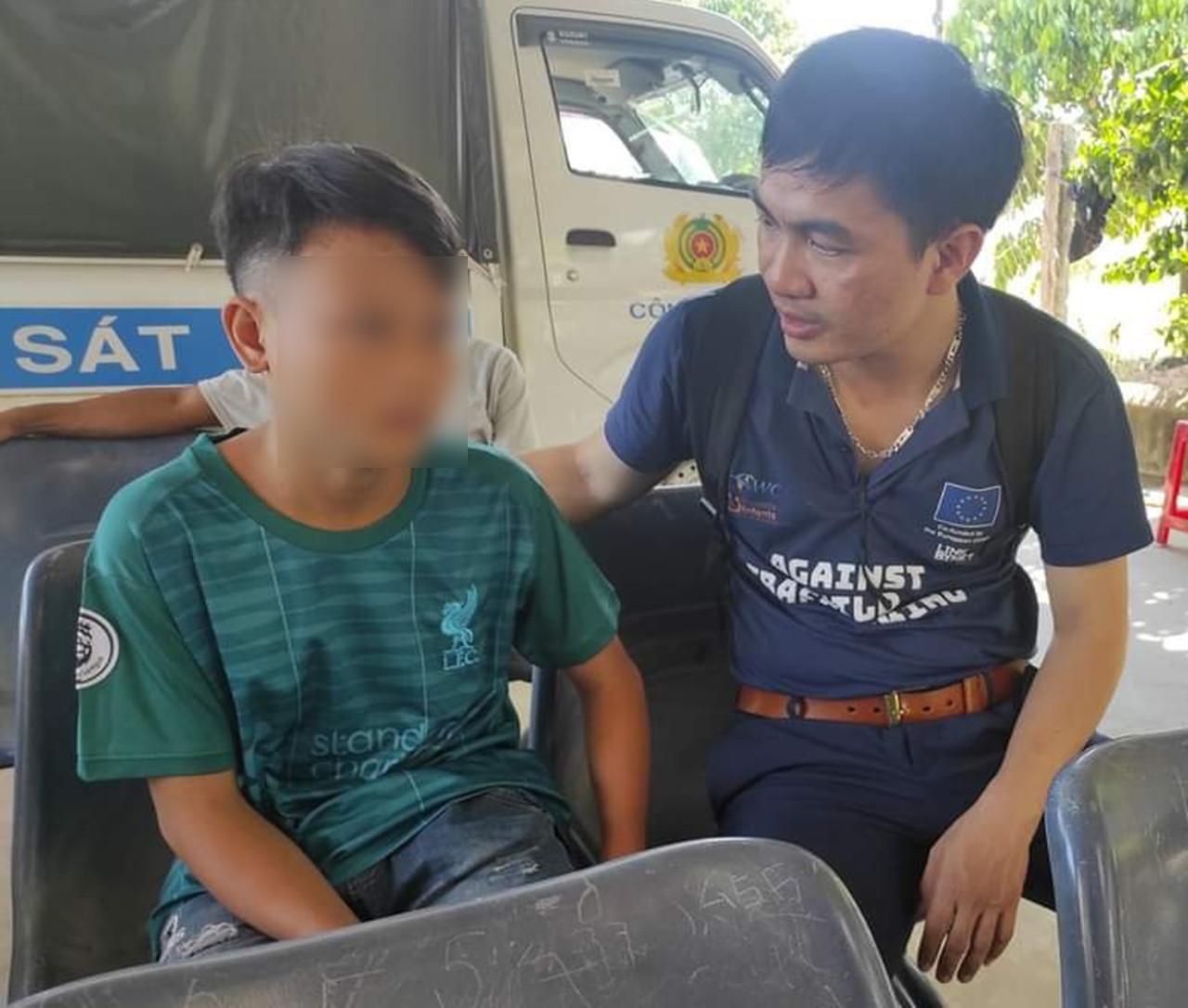
Early in the morning, in the room of the Center for Social Work, Education and Vocational Training in HCM City, Hoa was looking at trainee profiles.
He glanced through the pages and then paid attention to the notes about a 14-year-old boy, T, from Binh Duong province. Before T was admitted to the center, he was a street kid.
During the days of wandering the HCM City streets, he was lured by a scammer who took him to a job center and sold the boy to a group of strangers.
Later, he was taken to Ba Ria – Vung Tau province where he worked on a fishing boat. The boat owner promised to pay him VND12 million for four months of work.
However, the boat owner broke the promise, and took him ashore without paying any money, reasoning that T could not satisfy the requirements at work.
With no job and no money to feed himself, T continued to wander until he was brought to the center, where he got support to re-integrate into society, and received guidance on how to find a job and was equipped with life skills.
Hoa said he has met many children aged below 16, who were victims of child trafficking. When he came to see a child in Dak Lak, he discovered that the boy’s uncle gathered small children, aged 13-14, who did not go to school and needed money for food, and sold them to a ring in HCM City for VND2 million per child.
In HCM City, the children were sent to private business production works and were told that they would receive VND20 million a year each. However, they received VND18 million only, because the remaining VND2 million was used to pay the broker, who was the boy’s uncle.
However, not all of them received the salary because they were forced to work hard, which prompted them to quit the job.
“As the children don’t have money to return to their hometown, they have no other choice than becoming a street boy,” Hoa explained.
One of the unlucky children was L.H.N, 15, from Ha Giang. N was taken to HCM City and worked at a private garment workshop, from which he expected the wage of VND18 million. However, he received nothing after many months of working from 7.30 am to 9-10 pm every day.
Luckily, N was discovered by officers of the center and was returned home.
The healing
At the Center for Social Work, Education and Vocational Training in HCM City, Hoa considers trainees as his special students, because all of them have poor condition and need support to heal their traumas.
Hoa and his co-workers heal the children’s wounds with activities. At first, he cooperates with the center and contacts the street children’s families to know their wishes. At the center, the children can follow a general education program, get vocational training and receive advice about careers.
They also have a physical examination periodically and psychological tests. If problems are discovered, psychological experts are invited to treat them.
According to Hoa, the children can attend classes on life skills, participate in entertainment and sports activities, and join clubs that help them re-integrate into society.
“By giving vocational training and giving advice, we hope they can find a suitable job, so that they can earn a living,” Hoa said.
Since most children are from families with special conditions (parents are divorced, in prison or are drug addicts) it is hard to support and accompany the children. However, many encouraging results have been gained.
Many children are now leading a good life after leaving the center. They have their own families, stable accommodations, and jobs.
At the center, special attention is paid to girls. Many of them were victims of sexual exploitation.
L.M was one of them. Her parents were in Cambodia but M lived in Vietnam with an adoptive mother. M was separated from her adoptive mother and became a victim of labor exploitation. Admitted to the center, M studied to fulfill the general education program and learned nail art and makeup and helped find the adoptive mother.
Ha Nguyen